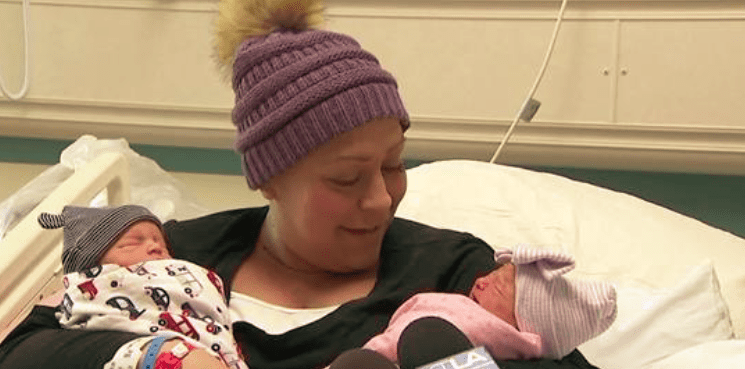What should have been a special time in Susie Rabaca’s life turned into a living nightmare – one from which she didn’t expect to wake. Just a few months into her pregnancy with twins, the 36-year old mother of three was diagnosed with acute myeloid leukemia (AML).
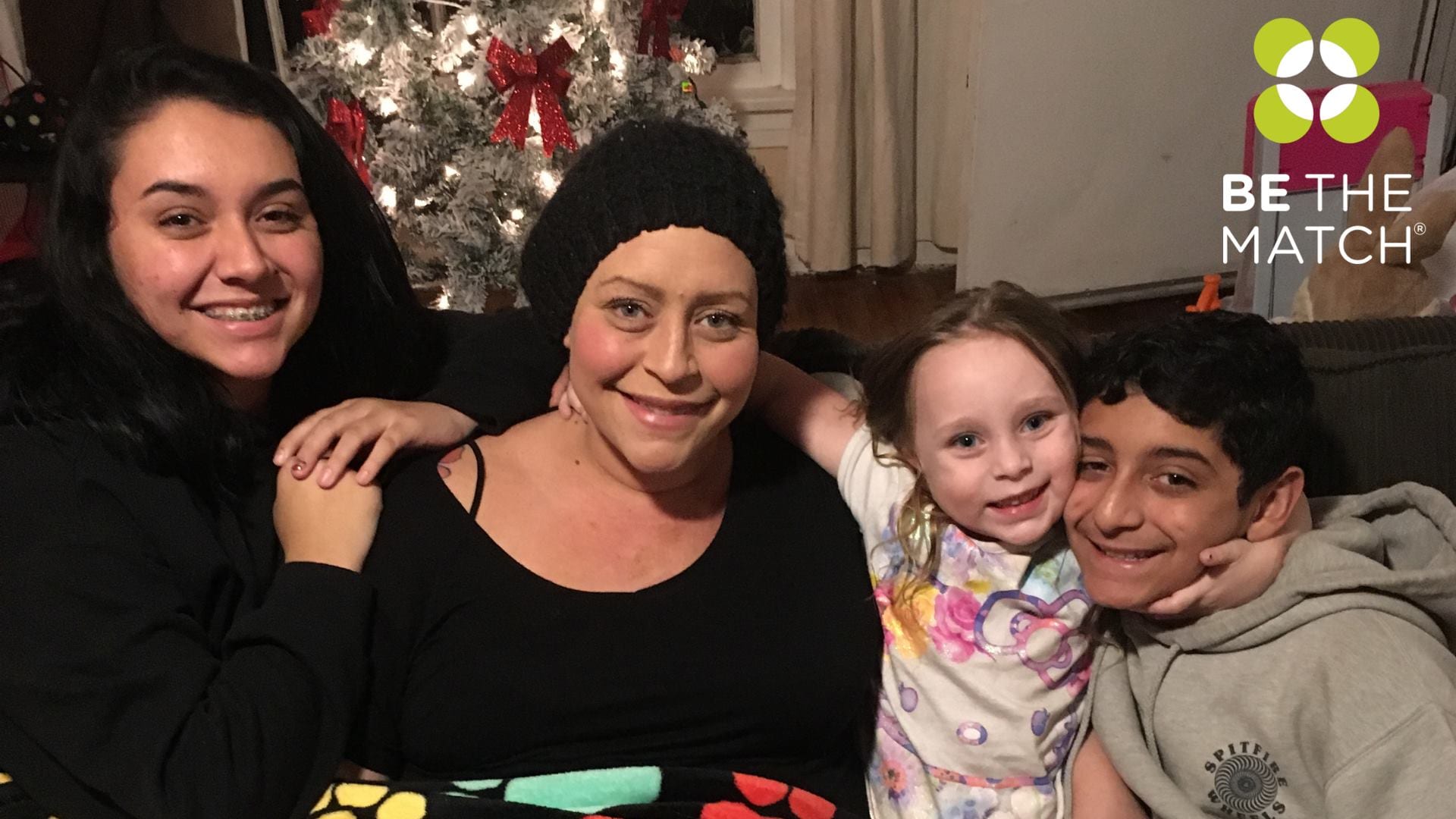
Photo Credit: Be The Match
She became one of around 12,000 Americans looking for a bone marrow donor. But she had an even bigger problem: because she is half Latina and half Caucasian, her tissue profile would make finding a match that much more difficult. Moreover, her aggressive cancer required a perfect match with the donor who could save her live. That also means someone with similar DNA and ancestry – her own sister was only a 50% match.
Even with 30-million people registered worldwide, Susie could not find the perfect match.
Be the Match registry representative Julie Korinke told ABC7, “Because matching is based on ancestry and DNA, it’s really important that our registry is just as diverse as our population and right now that isn’t the case.” Caucasians have a 77% chance of finding a bone marrow donor. But even though 19 million people are registered on Be The Match, only 7% are Hispanic and 3% are of mixed race.
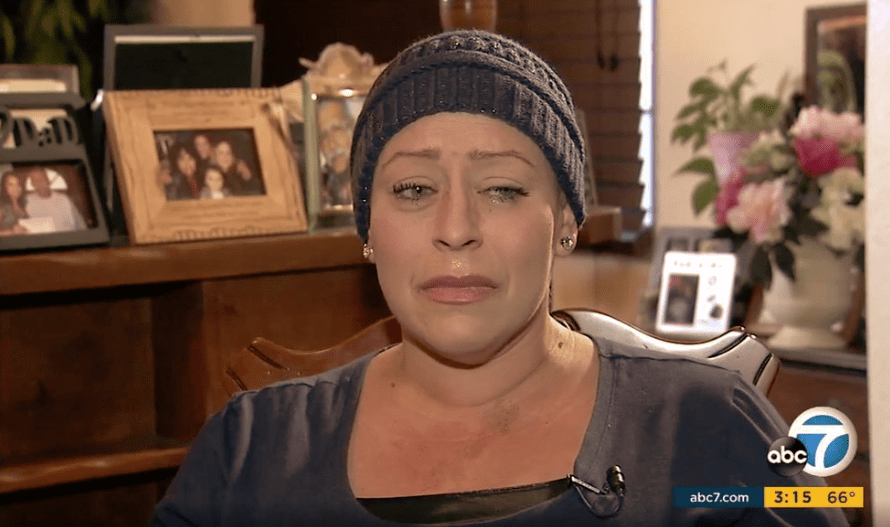
Photo Credit: ABC7
Rabaca had no choice but to turn to social media to share her story. She told Fox 11:
“Finding my match is everything to me so I can be here for the three children I have, and the two that I have on the way, it’s everything. It’s so easy, there’s no painful procedure, there’s no surgery, it’s just swab your mouth and it’s as simple as a blood draw, and you can save somebody’s life, if not mine, somebody else’s.”
Carrie Underwood, moved by the story, retweeted it.
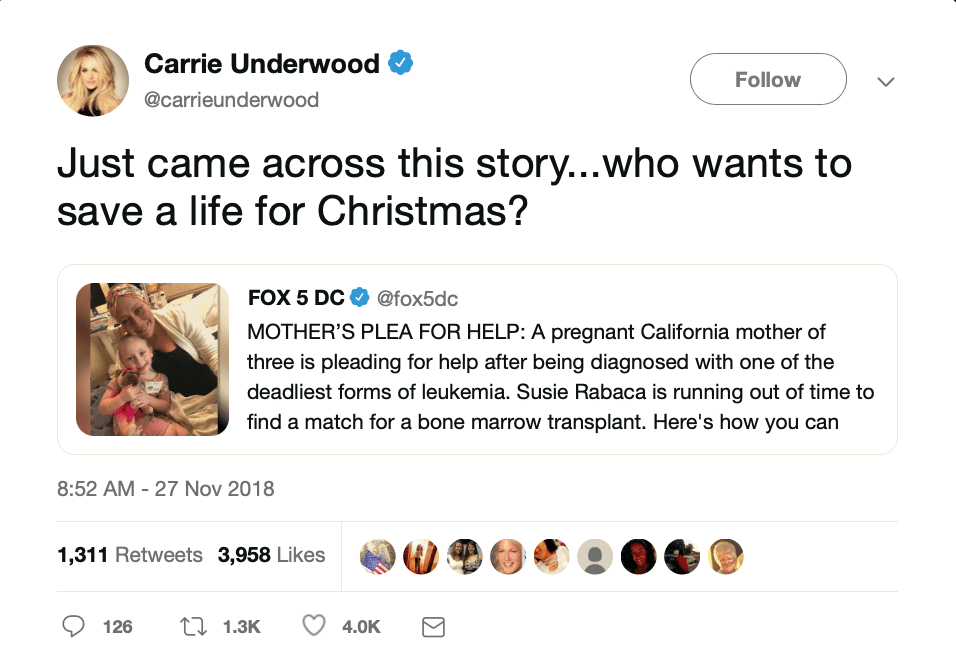
Photo Credit: Twitter
In one record-breaking weekend, 50,000 people registered as bone marrow donors after hearing Rabaca’s plea, according to NBC Nightly News.
Then on November 28, she finally found the perfect match.
As she told NBC News, “Oh my god, to me it’s beyond amazing… joy and happiness, it really is. It’s so exciting, it’s the best Christmas gift.”
Shortly after receiving the news, she delivered healthy twins. In January, she underwent a bone marrow transplant. Her life-saver remains anonymous.
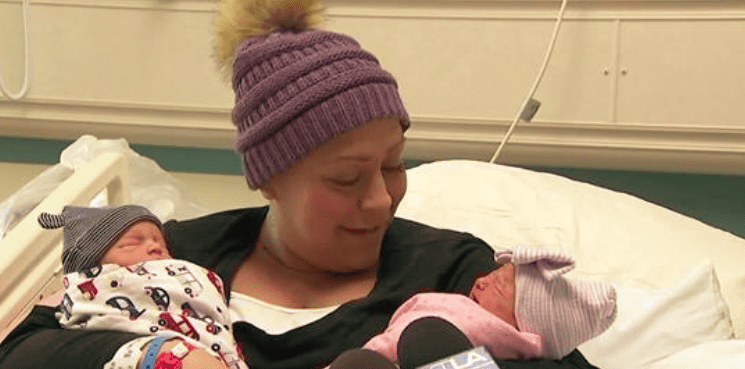
Photo Credit: Susie Rabaca
Rabaca’s determination to find a match for herself and her desire to help others of mixed ethnicities, resulted in over 60,000 new registrants able to provide more ethnically diverse donations than average. Because of this, more people with mixed heritages have a better chance of finding the critical match that will save their lives.
